What is Radically Open Dialectical Behavior Therapy (RO-DBT)?
Radically Open Dialectical Behavior Therapy (RO-DBT) is an evidence-based treatment developed by Dr. Thomas Lynch for disorders characterized by excessive self-control, such as chronic depression, anorexia nervosa, and obsessive-compulsive personality disorder. RO-DBT is an adaptation of standard Dialectical Behavior Therapy (DBT), originally developed by Marsha Linehan for the treatment of borderline personality disorder.
Core Tenets and Assumptions of RO-DBT
- Overcontrol: RO-DBT posits that some disorders are characterized by excessive inhibitory control and a lack of flexible responding to changing environmental demands. This overcontrol is driven by a biotemperamental bias towards threat sensitivity and caution.
- Social Signaling: RO-DBT emphasizes the importance of social signaling — the ways in which we communicate our emotional states and intentions to others. Overcontrolled individuals often have a restricted range of social signals, which can lead to interpersonal difficulties.
- Radical Openness: The core principle of RO-DBT is radical openness — the ability to flexibly respond to environmental feedback, even when it challenges one’s preconceived notions or desires. Radical openness involves vulnerability, transparency, and a willingness to learn from others.
The Development of RO-DBT
Dr. Thomas Lynch: Creator and Researcher
Dr. Thomas Lynch, a clinical psychologist and professor, developed RO-DBT in the early 2000s. Lynch had extensive experience with standard DBT but noticed that it was less effective for a subset of overcontrolled clients. This led him to adapt DBT, incorporating principles from evolutionary theory, neurobiology, and Malamati Sufism.
Key Publications and Research
- Radically Open Dialectical Behavior Therapy: Theory and Practice for Treating Disorders of Overcontrol (2018): Lynch’s comprehensive guide to the theory and application of RO-DBT.
- Radically Open Dialectical Behavior Therapy for Adult Anorexia Nervosa: Feasibility and Outcomes from an Inpatient Program (2013): A pilot study demonstrating the feasibility and preliminary effectiveness of RO-DBT for anorexia nervosa.
- Refractory Depression, Fatigue, Irritability, and Anger: A Clinical Syndrome and its Treatment (2015): An article exploring the application of RO-DBT to chronic depression.
Influences and Inspirations
RO-DBT integrates principles and practices from several domains:
- Dialectical Behavior Therapy: RO-DBT retains many of the core strategies of DBT, such as mindfulness, dialectics, and behavior change.
- Evolutionary theory: Lynch drew on evolutionary psychology to understand the adaptive functions of overcontrol and social signaling.
- Neurobiology: Research on the neural circuitry underlying threat sensitivity and inhibitory control informed the development of RO-DBT.
- Sufism: The spiritual practice of radical openness in Malamati Sufism inspired the core principle of RO-DBT.
Cultural and Economic Context of RO-DBT
RO-DBT emerged in the context of increasing recognition of the limitations of existing treatments for disorders of overcontrol. In contrast to the emphasis on self-esteem and individualism in Western culture, RO-DBT stresses the importance of social connectedness and the ability to learn from others.
Economically, the development of RO-DBT has been supported by grants from the National Institute of Mental Health and the National Alliance for Research on Schizophrenia and Depression. The growing evidence base for RO-DBT has facilitated its dissemination in clinical settings.
How Does RO-DBT Relate to Other Therapies?
RO-DBT shares some common ground with other therapies:
- Dialectical Behavior Therapy (DBT): As an adaptation of DBT, RO-DBT retains many of its core strategies and principles. However, it is tailored to the specific needs of overcontrolled clients.
- Acceptance and Commitment Therapy (ACT): Like RO-DBT, ACT emphasizes openness to experience and flexibility in the face of challenges. However, RO-DBT has a greater focus on social signaling and interpersonal functioning.
- Cognitive Behavioral Therapy (CBT): RO-DBT incorporates some cognitive and behavioral strategies, but places greater emphasis on experiential learning and the therapeutic relationship.
RO-DBT Treatment Strategies and Interventions
Radical Openness
Radical openness involves practicing vulnerability, transparency, and receptivity to feedback. Strategies include self-enquiry, challenging personal beliefs, and exposing oneself to novel experiences.
Social Signaling
RO-DBT teaches clients to expand their repertoire of social signals through skills training and in vivo practice. This includes expressing emotions, making requests, and repairing conflicts.
Mindfulness
Like in DBT, mindfulness is a core skill in RO-DBT. However, the focus is on “participatory” mindfulness – fully engaging with the present moment while maintaining an open and curious stance.
Behavioural Activation
Overcontrolled clients often have restricted behavioral repertoires. RO-DBT encourages clients to engage in novel and spontaneous behaviors to increase flexibility and positive reinforcement.
Self-Enquiry
Self-enquiry involves curiously questioning one’s assumptions, beliefs, and behaviors. It’s practiced through journaling, meditation, and discussion with the therapist and others.
Stages and Goals of RO-DBT Treatment
RO-DBT treatment typically involves three stages:
- Commitment: Building motivation for change and establishing treatment goals.
- Skills Training: Learning and practicing the core skills of radical openness, social signaling, and self-enquiry.
- Generalization: Applying skills to real-world situations and relationships.
The overarching goal of RO-DBT is to help clients develop greater flexibility, openness, and social connectedness. This involves:
- Reducing threat sensitivity and inhibitory control
- Expanding the range of social signals
- Increasing openness to feedback and novelty
- Engaging in values-consistent behaviors
- Building intimate and satisfying relationships
Is RO-DBT an Evidence-Based Treatment?
An growing body of research supports the efficacy of RO-DBT for disorders of overcontrol:
- A 2015 randomized controlled trial published in the Journal of Consulting and Clinical Psychology found that RO-DBT was more effective than treatment as usual for chronic depression.
- A 2017 pilot study in Behaviour Research and Therapy demonstrated the feasibility and preliminary effectiveness of RO-DBT for anorexia nervosa.
- A 2021 randomized controlled trial in The Lancet Psychiatry found that RO-DBT was superior to standard DBT and treatment as usual for treatment-resistant overcontrolled disorders.
While more research is needed, particularly on the long-term outcomes of RO-DBT, the existing evidence suggests that it is a promising treatment for a range of conditions characterized by overcontrol.
The Unique Contributions of RO-DBT
In the landscape of evidence-based therapies, RO-DBT stands out for its focus on disorders of overcontrol. Its unique contributions include:
- The conceptualization of overcontrol as a transdiagnostic factor underlying various conditions
- The emphasis on social signaling and radical openness as key mechanisms of change
- The integration of principles from evolutionary theory, neurobiology, and spirituality
- The adaptation of DBT strategies for overcontrolled clients
As our understanding of the psychology and neurobiology of overcontrol expands, RO-DBT provides a valuable framework for treatment and research. Its principles of radical openness and flexible responding to the environment hold wisdom for us all.
Bibliography and Further Reading
Lynch, T. R. (2018). Radically Open Dialectical Behavior Therapy: Theory and Practice for Treating Disorders of Overcontrol. New Harbinger Publications.
Lynch, T. R., Gray, K. L., Hempel, R. J., Titley, M., Chen, E. Y., & O’Mahen, H. A. (2013). Radically open-dialectical behavior therapy for adult anorexia nervosa: feasibility and outcomes from an inpatient program. BMC Psychiatry, 13, 293.
Lynch, T. R., Hempel, R. J., & Dunkley, C. (2015). Radically open-dialectical behavior therapy for disorders of over-control: signaling matters. American Journal of Psychotherapy, 69(2), 141-162.
Lynch, T. R., Morse, J. Q., Mendelson, T., & Robins, C. J. (2003). Dialectical behavior therapy for depressed older adults: A randomized pilot study. The American Journal of Geriatric Psychiatry, 11(1), 33-45.
Lynch, T. R., Whalley, B., Hempel, R. J., Byford, S., Clarke, P., Clarke, S., … & Remington, B. (2015). Refractory depression: mechanisms and evaluation of radically open dialectical behaviour therapy (RO-DBT) [REFRAMED]: protocol for randomised trial. BMJ Open, 5(7), e008857.



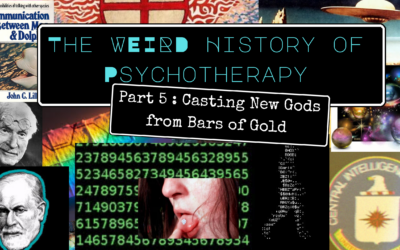
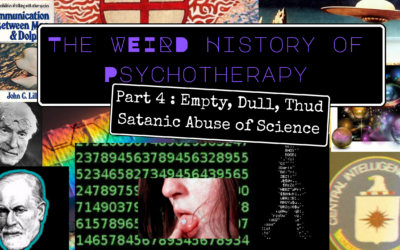
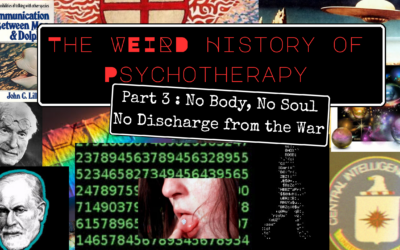
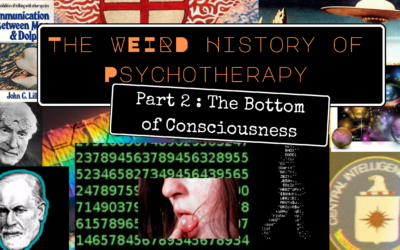

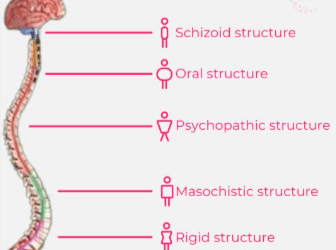










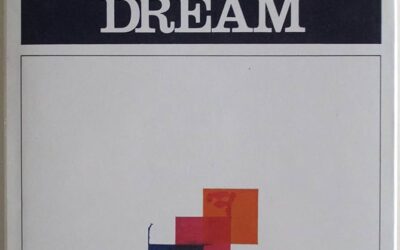


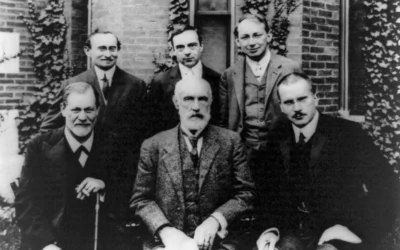
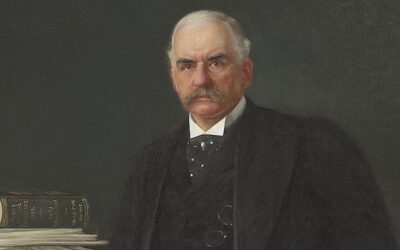

0 Comments